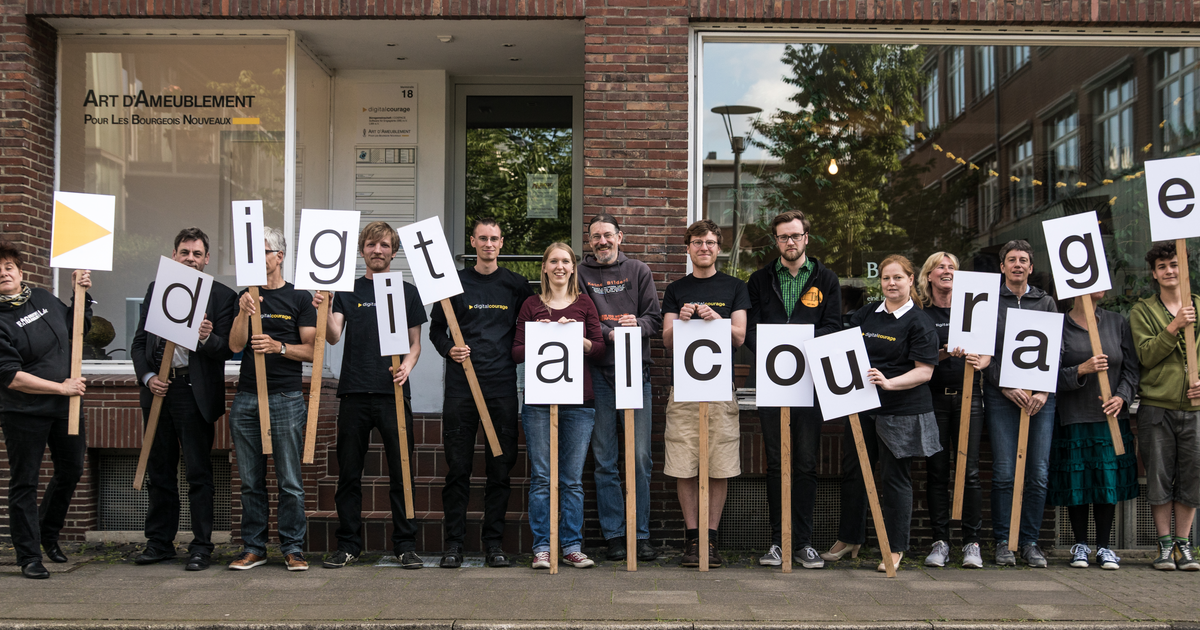Recent searches
Search options
#HybridWorking
Its increasingly clear hybrid working (working from home) is settling down to a compromise between workers/staff & employers of three days a week in the office... it would seem likely that these three days will be (across countries) Tuesday, Wednesday & Thursday.
For firms servicing commuters (in office areas), this looks like a prompt to revise their own workers' shifts patterns... but how this will impact on local economies is less clear; will WFHers spend more locally, now?
#OpenToWork Hi y'all.
I'm now properly looking for a new job, available from early September for a senior software role. Ideally, in #Kotlin or Java-to-Kotlin conversion. I think I can tick just about all the important boxes for backend development and some more. (especially XP, #DevOps, #TDD, trunk-based development, pairing, fast feedback cycles). Ideally, #remote or flexible #HybridWorking in #London (the one in the #UK).
Leaving aside the ONS' current travails with their workforce data, I think we can take as pretty indicative their confirmation that hybrid working is highly class determined, with workers with degrees & in white collar jobs much more likely (unsurprisingly) to be able to work from home....
Over a quarter of workers now 'enjoy' hybrid working & they are much more likely to be living in the UK's least deprived areas.
I’m the parent of a one year old child. I’ve received several invitations to speak at workshops and conferences this year, and not one has been willing or able to accommodate me giving a remote talk.
Did we learn nothing from the pandemic? And if I with all my privilege (and being gallus enough to ask) can’t do it, what hope for precarious, early career, minoritised academics?
If the Labour Govt. was serious about helping disabled people get work (rather than a bad faith rationalisation for disabled benefits cuts), what they should be doing is helping ensure that hybrid working (and extensive working from home) is protected & indeed, promoted (and not just for the disabled).
The Work Foundation has found hybrid working plays a major role in allowing people with a range of health conditions to manage them.
#HybridWorking #workers #disability
https://www.lancaster.ac.uk/work-foundation/publications/beyond-the-office
Quite how angry workers who have been enjoying hybrid work (working from home for some of the week) are about calls to 'return to the office' is becoming increasingly clear.
Good management would (and is) finding ways to make hybrid work well (as indeed it often does), but of course the UK bullying (toxic) managers only see a threat to their authority, while landlords are worried about under used (and thus soon to be vacant) office space.
Come and work with me and my fabulous network team in Loughborough, UK!
Happy to answer questions in public or via DM
https://www.jobs.ac.uk/job/DLZ032/it-specialist-network-and-smart-campus
Leave aside a minute your judgment on the character & operations of Fortune Magazine's top ten most admired corporations in America (they say 'world') & look at their staffing policies.
Yes, 7 out of 10 most admired top US firms are offering some form of hybrid work for their workers; perhaps UK managers should pause before continuing to impose 'back-to-the-office' requirements.
Hybrid working (for this able to take advantage of it) still looks like the way forward!
@ChrisMayLA6 Last three times they tried “back to office” on me, I left and found a new employer. #HybridWorking rules!
As managers across the economy seek to constrain or even stop hybrid working (and working from home), those sectors with stronger unionisation are reacting with strike action against such 'back to the office' policies.... this week public sector workers at the Land Registry are starting industrial action (short of a strike currently) in a dispute over a three day in the office rule being imposed on all sites.
Managers just don't (or won't) get it, will they?
h/t FT
Starling, an online-only challenger bank in the UK is in the news.
‘CEO Raman Bhatia has ordered all hybrid staff … to travel to work for a minimum of 10 days each month.’
And the very next paragraph…
'But the bank, which operates online only, admitted that some of its offices would not be equipped to handle the influx.’
I may consider moving banks. I can't support a bank run by an idiot.
Interestingly, the private sector's wrestling with how to deal with working from home & its transition into hybrid working has hit upon the solution that exists across much of the university sector (during term time) - three days on the premises, two days working at home.
If anyone had asked university academics they could have suggested this was a workable compromise a long time ago..... but there we go.
#HybridWorking has benefits over fully in-person working — the evidence mounts https://www.nature.com/articles/d41586-024-01713-1
A review of nearly 2000 studies of #workingfromhome confirms what many knew already: 'there are ways to make the home working approach actually work well for the organisation & also for the employee'!
But first you have to convince #managers who see #WFH as undermining their power & are as a result are keen to have intrusive #surveillance as part of any acceptance of #HybridWorking.
And of course WFH has its downsides, from distractions from routine work to snacking!
https://www.theguardian.com/business/2024/feb/17/working-from-home-can-bring-big-health-benefits-study-finds
Excellent piece on #HybridWork by Andrew Mason explaining why employees and managers tend to find themselves on different sides of the debate
The bosses view on #HybridWorking:
The majority of top executives i a recent KPMG survey thought that in the future, promotion and pay levels will be tied to attendance at the office...
Yup, those toxic managers who don't like you #workingfromhome, will be working tirelessly to make your career suffer unless you come back to work to be bullied, harassed & generally abused (because they like it like that)
As #office vacancy rates hit 10% in UK, the move to #HybridWorking & the strong pressure from to accommodate #workingfromhome suggest commercial property may be about to see significant change(s).
Already investment in new offices is down & firms (as previously posted) are shifting their facilities management strategies (moving & changing offices).
The Q. is how do we make these moves work positively as part of any #greentransition?
Despite is demonisation, is the 15 minute city the answer?
An FT report suggests that #workingfromhome & more #hybridworking has led to two key changes for firms supporting staff's desire to continue #WFH for some of the week.
1: they are making their #offices more flexible & welcoming, to encourage staff to use them for collaborative activities (not so well done #online);
2: they are migrating their offices to better connected more central locations to make travel in easier when it is needed.
The 2nd is the opposite direction that many expected!
Perhaps unsurprisingly, it now appears that #women have benefitted more than men from the expansion of #hybridworking.
Public First analysis on ONS data suggests a shift to more full time working, especially in sectors such as #financialservcies & IT-related employment.
This then puts a different slant on the move by some #employers to limit or constrain #workingfromhome as part of hybrid working.
When something that benefits women is rolled back then we might think there's #sexism around?



